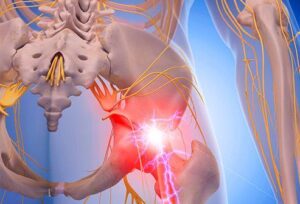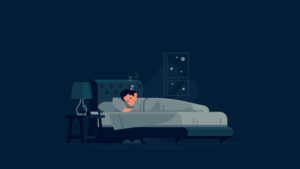Pain affects your quality of life. Your lifestyle habits affect your pain levels. Whether you are suffering from acute or chronic pain, your lifestyle could be blamed for it. Chronic pain often brings issues including anxiety, fatigue, lack of sleep, depression, and lack of concentration. Pain and lifestyle are interconnected, and one can impact the other. You need to bring about some lifestyle changes in order to manage pain and improve your quality of life.
When you work on improving your physical and mental health through lifestyle changes, you can better manage pain. Life factors that may influence pain include food, medications, sleep, activity level, stress, and being social, among others.
Manage Stress
There is a connection between negative feelings and pain. A sense of negativity and negative feelings can raise your body’s sensitivity to pain. If you are suffering from stress, anxiety, depression, or anger, it might have an adverse effect on your sensitivity to pain. Research reveals that stress exacerbates pain while positive experiences ease it. Stress can have deleterious effects on the immune system. It could severely crimple muscles, resulting in stiffness and cramps.
So the best way out is to learn to manage stress and find relief from chronic pain. You could include relaxing activities in your routine to overcome stress and anxiety and boost health, which will further help prevent lower back pain and related symptoms.
Soothing music can help lift your mood and calm your nerves, promoting relaxation and thus helping reduce stress. Other stress busting activities may include meditation, stretching, counseling, cognitive-behavioral therapy, and yoga.
A relaxed body is less likely to experience pain-related symptoms.
Eat A Balanced Diet
Certain foods can trigger and/or worsen pain symptoms. Pain is often triggered by inflammation. If your diet is comprised of a majority of inflammation-causing foods, you are more likely to experience chronic pain symptoms, setting you up for other serious health disorders. Sugar is the number one cause of diet-induced inflammation. According to the American Journal of Clinical Nutrition, a diet rich in
processed sugars is more likely to result in inflammatory messengers or cytokines, causing you more pain or worsening your painful symptoms.
Food products containing saturated fats trigger inflammation of the fat tissue, worsen arthritis-related pain, and cause cardiovascular disease. While omega 3 and 6 fatty acids are a part of a balanced diet, an elevated intake of omega 6 can trigger a pro-inflammatory response and worsen pain.
Physical Activity
The lack of movement could trigger a cycle of chronic pain. Researchers in Finland claim that a lifelong chronic pain condition results from a sedentary lifestyle and lack of movement. Even a small improvement in the amount of physical activity could help keep a check on your painful symptoms. This could further help manage weight. An obese or overweight person is more likely to experience pain in the back, legs, and spine.
Avoid sitting for a prolonged period of time. Get up every 30 minutes, move slowly, and take deep breaths for better circulation. This can help reduce stiffness and pain.
Social
When you are alone, you experience more pain. Being socially isolated tends to increase your perception of pain while being social could help you feel less pain. It would help to become a member of a chronic pain support group, where you get to learn from others’ experiences of pain and lifestyle management. There is something to learn from the people you connect to.
If you are in chronic or acute pain and are still wondering how to manage pain and lifestyle, connect with Dr. Raviinder Parmar. Let us throw some light on how your lifestyle habits induce pain. Also, learn with us how to manage pain better with lifestyle adjustments.













